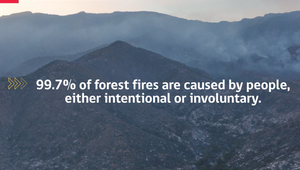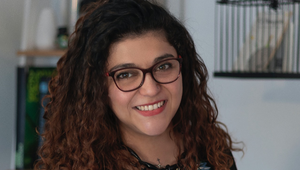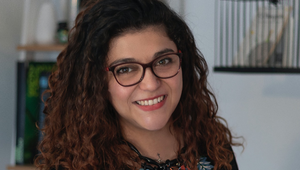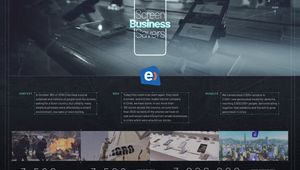
Production Line: Making Human Connections with Mariela Cardozo
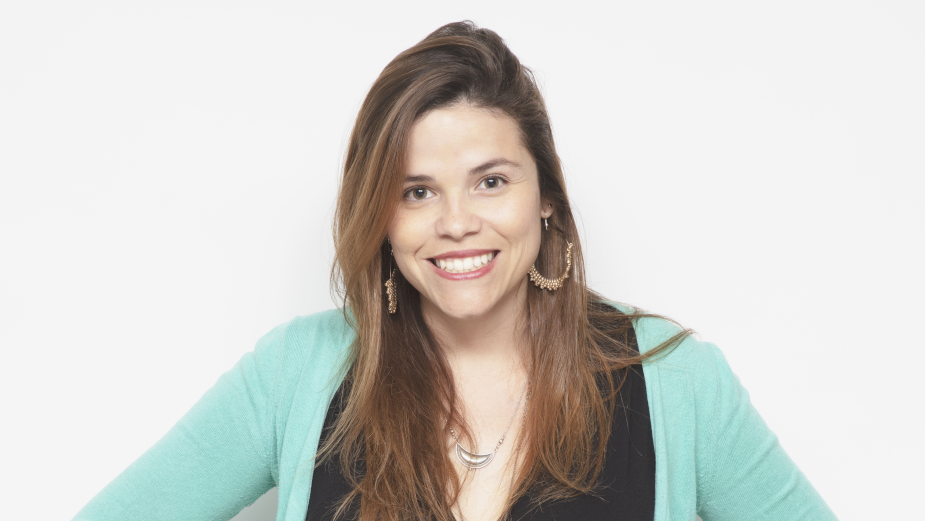
Mariela Cardozo has a degree in audiovisual media. During the last five years of her career, she developed into a senior content producer for Commonwealth // McCann Santiago. Currently, she works for Craft as head of integrated production. She is passionate about the image and creative processes, and a main objective of hers is to raise creative and productive excellence with the support of organic and concrete processes to tell the best possible story for the brand.
LBB> What lasting impact has the experience of the pandemic had on how you and your agency think about and approach production?
Mariela> The pandemic has undoubtedly been a real test for the advertising industry, especially for my area of production. As a team, we have already felt the need to evolve to be able to work remotely and offer the same quality of work. From one week to the next, we had already changed our offices for our houses, so we abruptly understood that we had to continue offering our services in a different way than usual and that was where we challenged ourselves to achieve it.
It was a very positive change because we put technology and creativity at the forefront of our production model and we understood that the strategy of how to produce was as important as creativity. This event led us to approach production from a totally different perspective than what we used to do. Now we can really take advantage of our global teams, eliminating borders and using technology as an ally. This pandemic, at the production level, came to remind us how adaptable we must be to achieve the end goal, despite the difficulties that come our way.
Finally, we continue to think about the importance of production integration from the conception of the idea, it has turned out to be much more efficient at the time of production, resulting in a first-rate producer. Working together during the early stages of creative gestation allowed us to bring ideas to life despite all the challenges and restrictions that the pandemic imposed on our industry.
LBB> Aside from Covid-19, what have been the most disruptive forces to hit agency production in the past few years?
Mariela> In recent years, we have had the need to understand and work towards digital assets - and this trend has been increasing. Therefore, our goal from production has been to promote the creation of assets that can be amplified to multiple platforms without losing your creativity along the way...
The content is increasingly disposable and the vanguard in ad-hoc production to social networks is more and more challenging every day. Another important point is that technology and platforms are constantly changing. We are constantly being asked to produce work in new formats where we need to quickly become experts. And budgets, in most cases, are reduced, yet we are being asked to produce fully integrated campaigns that have hundreds of deliverables for less money than ever before.
LBB> A good producer should be able to produce for any medium, from film to events to digital. Do you agree or disagree with this statement? Why / why not?
Mariela> In my view, the art of production lies in being able to combine / lead / unite all areas of expertise in the audiovisual world in favour of the story to be told. Therefore, the essence of that concept applies perfectly to a film producer as well as an advertising producer. Now, confidence in our day-to-day work is given to us by our experience and without a doubt that if we specialise in a branch of production, whether in film or advertising, we will have more intuition and experience in that specific area. The objective would be to ask ourselves, who is the best producer based on his knowledge and experience to produce the best work, be it cinema or advertising.
LBB> And leading on from that, when it comes to building up your team at the agency, what’s your view on the balance of specialists vs generalists?
Mariela> The question raises something clear: balance. And I think that is the key, the balance that may exist in the team. Integrated creative producers are generalists - or in other words, comprehensive - which can help shape all phases of production development. And that's where I definitely think the two complement each other. The difference is that a generalist can generally see through the fog a little better and provide multiple solutions, while a specialist can capture that thought, making us even more complete.
In my case, I consider myself a more generalist and I usually bring the team to different specialists depending on the nature of each challenge that comes our way. A healthy combination in my opinion is the mixture of both and understanding the strengths and weaknesses of the people who make up the team.
LBB> What’s your own pathway to production? When you started out, what sort of work were you producing and what lessons have stayed with you in that time?
Mariela> My path to production began when I was a film student. Even when I chose to specialise in cinematography rather than production, perhaps without realising it, I focused more and more on organising all the edges of a student production with a creative eye and at the same time being a creative problem solver. If I wanted such a camera and I didn't have it, I was looking for heaven and earth to find a way to get it, and thus thousands of examples, locations, actors, trips, distribution of my short films, for everything I always tried to find a solution and achieve the objective. This is how I began to realise that although I loved the image from the gaze of a young woman who wanted to be a photo director, I was very good at producing and endless job proposals began to emerge for me as a producer.
At first, I produced short films. Until the publicity reached me when I moved to Chile, I worked in several production houses, and I started a nice challenge at McCann / Craft where I have continued to develop professionally. As a producer, I take the creative and bring it to life. I am here to promote ideas and help make them come true, always remembering the importance of having a comprehensive vision, building a solid foundation that allows me to ask myself questions, solve problems, multitask and learn from mistakes. Every job is different and you learn something invaluable from each one, no matter how big or small.
LBB> If you compare your role to the role of the heads of TV / heads of production when you first joined the industry, what do you think are the most striking or interesting changes (and what surprising things have stayed the same?)
Mariela> In my view, the difference is that the job of a production manager today is much more comprehensive. Previously, the job consisted of making television, film or radio commercials. Today, we produce ads with production companies, we have in-house post-production, we produce our own content, we cover all kinds of additional content and we are involved much earlier in the development of advertising campaigns. In other words, previously the means were less, and today the means are many more. And for this we have had to adapt and become integral.
We at production agencies like Craft must be multidisciplinary, more efficient with budgets, and we must integrate disciplines by bringing everyone to the table in the production phase. This allows us to create more content, do it faster and interact with consumers in a more intimate way. We need to meet consumers where they are; online, through brand experiences, through broadcast. But mainly online through mobile devices, tablets and computers. Brands can no longer rely on big TV commercials and wait to get products off the shelves. Customers rarely budget for streaming these days. Consumers want to interact with the brands they like and want to experience product offerings.
LBB> There are so many models for the way production is organised in the advertising industry - what set-ups have you found to be the most successful and why?
Mariela> I honestly believe that the models are unique for each client, I cannot have an exact model to replicate. The production approach will vary depending on the amount of time we have, the budget and the level of production quality we want to achieve. What I always try to do is: have a work essence of good practices that guarantee us a good result as a team, be very organised, have as many details in the briefing, work with trusted and excellent collaborators / suppliers, bring experts to the team if necessary, creatively supervise everything on the productive side and something that I have learned in recent years and that I always try to apply - be adaptable and trust our intuition as a team.
LBB> When working with a new partner or collaborator, how do you go about establishing trust?
Mariela> In my experience, the best way to establish trust in our current situation is to start by making a human connection, whether it be through the screen or over the phone. It is important to see someone's face or hear their voice to make sure we are in tune from the beginning. Production does not work without teamwork and great collaborators, that is why my relationships with my supplier partners are fundamental. I try to set the tone by making sure they know that I will give them everything in my power to succeed and get the project together, as well as having clear expectations from the beginning. Being able to maintain an open dialogue and a willingness to be flexible during the production process is crucial, with transparency and empathy. Always. And now even more than ever, as the pandemic created a common ground between all that goes beyond business. The business relationship now also has a specific personal aspect because we all see and experience the fragility of our business and our lives.
LBB> What are your thoughts on the involvement of procurement in production?
Mariela> I think these processes are useful when managing large multi-vendor projects as they can capture a detail that a producer may have missed in the noise that leads to a production as we often juggle a lot. However, over the years, I think a side effect of involving procurement is that the overall budget and fees have been lowered, while production has become increasingly complex. Most of my experiences have been positive and I consider them to be good partners when they understand the nuances and subtleties of a production.
LBB> Should production have a seat in the c-suite - and why?
Mariela> I think that it should, because I believe that understanding production is absolutely fundamental to understanding the future of advertising and marketing. Production is one more link in the marketing and communication ecosystem and in the end it is the link where great ideas come to life, since a great idea with poor production can go completely unnoticed. Therefore, by combining and integrating the entire ecosystem, we are able to build a unique product, which is what customers are looking for and especially the C-Suite, that their product or service is unique in the market.
Producers are the connectors and curators of the final result and having them in contact with their clients has a positive impact on those relationships. Having us there allows production and platform thinking to come early which would avoid frustration or disappointment in the development process
LBB> Clients ’thirst for content seems to be unquenchable - and they need content that’s fast and responsive! What’s the key to creating LOTS of stuff at SPEED - without sacrificing production values? Is it even possible?
Mariela> In my view, the key is to enter into creative development from its inception, it is important that we all know the budget and the deliverables or rather the means where this campaign should go, so that it can conceive within those barriers. Production can and should enter during this phase so that all thinking and planning for execution begins earlier in the process.
Our team needs people who know creativity inside and out to make quick decisions that are based on the brand. For example, Craft being integrated with the creative team can generate or capture a greater amount of assets at the time of producing a piece to have enough material for a production to remain active, its message is amplified, in this way we not only manage to be more efficient, but also faster in generating new content.
LBB> To what extent is production strategic - traditionally it’s the part that comes at the ‘end’ of the agency process, but it seems in many cases production is a valuable voice to have right up top - what are your thoughts / experiences of this?
Mariela> It is important that everyone is informed from the beginning of the project so that we all work together to create ideas that can be produced quickly without limiting creativity. Production is very strategic. There are so many ways to get to Rome, so it is important to understand our brand clients' goals and how brands interact with people on platforms and how people interact with brands. As producers, we should inform and work closely with the strategy and creative teams to integrate production, strategy and creativity from the beginning. This helps brand consistency, can create process efficiencies and can also help save on overall production. Production should not be seen as an add-on to the end of the process, but should be treated as the visualisation of the cumulative strategic process.
LBB> What’s the most exciting thing about working in production right now?
Mariela> Making the idea tangible, for me, is the greatest satisfaction of my work. And the most exciting thing is that no two jobs are the same. Producers are adapting to innovation, technology, platforms and constantly changing possibilities. The ideas are endless - if you can think about it, you can do it.
LBB> And what advice would you give to an aspiring agency producer?
Mariela> I would tell them to train to be an integral producer, to know the areas of an audiovisual production so that later on they can see them and understand how they work together for the same purpose. I'd say that you should trust your instincts and to fight to achieve all the challenges that are presented to you at work, while being very communicative and organised. Finally, having empathy and maintaining good human relationships are key to development.








